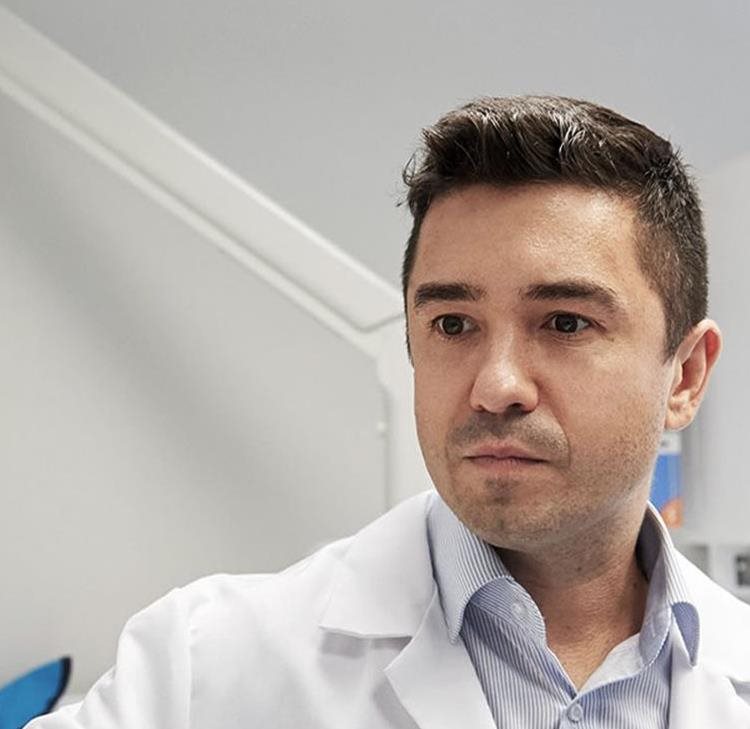Reforming the Mental Health Act - a review of the MHA White Paper
It is two years since Professor Sir Simon Wessely delivered his landmark Independent Review of the Mental Health Act. The government has now published the Mental Health Act white paper, setting out their plans to reform the act in response to Sir Wessely’s report.
Introduction
It is two years since Professor Sir Simon Wessely delivered his landmark Independent Review of the Mental Health Act. His report set out proposals for change in both law and practice in order to deliver a more modern mental health service, to strengthen patients’ rights and to address the existing disparities in how the act currently affects people from black, Asian and minority ethnic minority (BAME) backgrounds.
The government has now published the Mental Health Act white paper, setting out their plans to reform the act in response to Sir Wessely’s report. If the proposals set out in the White paper are accepted, we will see the introduction of some of the most significant changes to the existing legal framework in relation to mental health law since 1983. These include a change to the statutory criteria for detention in Part II cases, shorter detention times, widened scope of the Tribunal, changes to the consent to treatment provisions and to the nearest relative legal framework to mention just a few.
The white paper can be accessed here.
The white paper was published 13 January 2021. It is now subject to a 12-week public consultation which closes on 21 April 2021.
There are 3 parts to the white paper: legislative reforms, reforming policy and practice, and the government response to the independent review. This article will focus on the proposed changes to the Mental Health Act.
Some of the key proposed changes to the Mental Health Act 1983
New Guiding Principles & a more person-centred system
As part of a range of proposals to put patients at the centre of decisions about their own care four guiding principles are proposed:
- choice and autonomy – ensuring service users' views and choices are respected
- least restriction – ensuring the Act's powers are used in the least restrictive way
- therapeutic benefit – ensuring patients are supported to get better, so they can be discharged as quickly as possible
- the person as an individual – ensuring patients are viewed and treated as individuals
Clearer, stronger detention criteria particularly for Part II patients
The rate of compulsory detention in mental health hospitals has more than doubled since 1983 and it is disproportionately higher among certain ethnic minority groups, with black people four times more likely than white people to be detained under the act and ten times more likely to be put on a CTO.
In this context and in the context of proposed improved community mental health provision, it is proposed that the detention criteria be amended so that it must be demonstrated that:
- the purpose of care and treatment is to bring about a therapeutic benefit
- care and treatment cannot be delivered to the individual without their detention
- appropriate care and treatment is available
In addition, for s2 and s3 patients, it is proposed that in order to be detained it must be demonstrated that:
“There is a substantial likelihood of significant harm to the health, safety or welfare of the person, or the safety of any other person.”
Shorter detention periods and more frequent review of the case for detention
At present, s.3 patients are detained for 6 months, which can then be renewed for a further 6 months and thereafter on a yearly basis.
It is proposed to change this to an initial detention period of 3 months, which can then be renewed to 6 months, thereafter to 12 months and then yearly.
It is proposed that patients would have the right to apply to the Tribunal once in each period of detention.
In addition, it is proposed that the patient’s Nearest Relative (which will be amended to Nominated Person – see below), and going forward their IMHA, will also have the power to apply to the Tribunal on the patient’s behalf.
In addition, it is proposed that the patient’s Nearest Relative, and going forward their IMHA, will also have the power to apply to the Tribunal on the patient’s behalf.
Where a patient (or their NR/NP or IMHA) does not request a Tribunal, an increase in the frequency of automatic referrals to the tribunal is also being considered to:
- 4 months, 12 months and annually for s.3 patients
- 6 months, 12 months & annually for CTOs (but not when a CTO is revoked)
- Part III patients every 12 months
- Conditionally discharged patients 2 years then every 4 years
Statutory care and treatment plans
The white paper includes proposals to introduce a statutory requirement for all patients subject to detention to have a care and treatment plan, to be developed by day 7 of detention and thereafter authorised within 14 days by the medical/clinical director. In practice this will mean clinicians setting out in detail their assessment and plan for a patient's care and treatment, including how the patient’s wishes and preferences have been accounted for and what the intended route is towards discharge.
The plan would be considered by the Tribunal as part of the evidence for continued detention. In view of this it is suggested that detaining authorities may not need to prepare all the current Tribunal reports currently required.
A new legal framework for patient consent and refusal of medical treatment
Strengthening the patient's right to choose and refuse treatment - Advance Choice Documents
Proposals for the introduction of advance choice documents (ACDs) setting out the advance wishes of the patient in relation to their care and treatment, which decision makers would be legally required to consider when making treatment decisions.
An ACD would have to be made when the individual had the relevant capacity. The statements made within it would only be considered if the individual lost the relevant capacity to make decisions about their own care and treatment.
There would be a legal requirement on clinicians to consider the contents of an individual's ACD while they were detained under the Act.
The ACD would set out details of any treatments the person did not wish to consent to as well as their preferred clinically appropriate treatments, preferences and views on how treatments should be administered, the name of their chosen Nominated Person and a range of other matters.
Patient's right to refuse invasive treatments such as ECT
Proposals that if the patient had capacity and refused ECT or had set out such views in their ACD they would not be able to be given ECT.
The Responsible Clinician (“RC”) would only be able to override such a patient’s refusal of ECT if it was considered urgent, meaning it was considered necessary to save the patient's life or prevent a serious deterioration of their condition (as currently described in section 62(1) (a) and (b) of the Act).
The RC would be required to seek approval from the court before overriding such a patient's refusal.
The RC would also have to secure two medical opinions to support their application.
Where the patient lacked capacity a Second Opinion Appointed Doctor (“SOAD”) would be required to consider their previous views (and their beliefs and values).
Where appropriate there would also be a requirement to consult the Nominated Person, family or others who know the patient well.
Treatments: all other medication
Proposals that where a patient was refusing treatment, and the RC wished to overrule their refusal, a SOAD would have to certify the patient’s treatment from day 14 of the patient’s detention (rather than currently at the 3-month point).
For those patients lacking capacity to make decisions about their treatment, the SOAD would be required to certify their treatment at 2 months into their detention (as opposed to 3 months currently).
For urgent treatment needed to alleviate serious suffering (as described in section 62(1) (c)), the proposal is that this should only be permitted where the patient lacks the relevant capacity to refuse treatment at the time.
The right to choose to suffer
Proposal that urgent treatment could no longer be given to patients with the relevant capacity, against their wishes, on the basis of the alleviation of serious suffering (i.e. the removal of 62(1)(c) of the Act). This proposal is based on the rationale that patients with the relevant capacity should be able to make their own judgments on the degree of suffering they are willing to accept.
Under this proposal, urgent treatment could still be administered to patients with the relevant capacity if it was:
- immediately necessary to save the patient's life
- (not being irreversible) immediately necessary to prevent a serious deterioration of their condition
- (not being irreversible or hazardous) immediately necessary and represents the minimum interference necessary to prevent the patient from behaving violently or being a danger to themselves or to others
A new right to challenge a treatment decision at the tribunal
Proposals to introduce a statutory right enabling patients to challenge treatment decisions at the Mental Health Tribunal. There would be the following preconditions for permission to bring such a challenge:
- The RC and SOAD had confirmed that the treatment should be given and have set out the reasons for overruling the patient's refusal and;
- The patient, or their NP or IMHA, had set out the treatment refusal and rationale for it and;
- The application applied to a specific disagreement about an individual treatment decision, rather than a general desire not to be detained, or to not receive treatment; and
- Any repeat application showed a material change in circumstances.
It is proposed that the tribunal would be able to make findings that the RC should reconsider. Cases would be dealt with by a single Judge sitting alone.
The judge would not take any role in clinical decision-making and they would not be able to authorise the use of a specific treatment. However, the judge would be able to make a finding that the Responsible Clinician should reconsider their treatment decision.
Introduction of nominated persons
Proposals to replace the “Nearest Relative” with Nominated Persons (NP), who the patient could choose if they had capacity to do so (including 16- and 17-year olds).
If the patient lacked capacity to make this decision, an Interim NP (INP) would be identified and appointed by an AMHP ( “Approved Mental Health Professional”) until such time as the patient regained capacity and could make their own choice.
It is proposed that a patient with capacity could decide to have no NP.
It is also proposed that patients detained under Part III of the Act would be able to have an NP, which isn’t currently the case.
The white paper includes proposals to increase the rights of NPs, to include a right to be consulted on care plans, to appeal clinical decisions to the tribunal and to object use of a Community Treatment Order (“CTO”).
In addition, it is proposed to legislate so that the NP's objection to admission could be temporarily overruled, as opposed to the NP being removed or displaced (as currently), to ensure that they continue to have a role in the patient's care and treatment while they are detained. It is also being considered whether the Tribunal would be better placed to deal with such applications sitting as a single Judge, rather than the County Court (which is the current arrangement).
CTOs
There are longstanding concerns about CTOs at government level, for example due to the fact that NHS Digital's annual report on the use of the Act reported that in 2019/20 black or black British people were now over 10 times more likely to be given a CTO than white people. There is also a concern about over-use.
Therefore, the white paper sets out proposals to revise the statutory criteria for CTOs to also include the ‘substantial likelihood of significant harm’ test, together with a requirement that the CTO would have a therapeutic benefit to the patient.
It is also proposed that there would be a requirement for a third decision maker alongside the Responsible Clinician and Approved Mental Health Professional (including for renewals), together with a requirement to consult the NP (who would be able to object, as currently with s.3 applications).
In addition there would be an expectation set out in Code of Practice guidance that a CTO should not last for more than 2 years.
Lastly the white paper includes a proposal that the Tribunal would be able to recommend a change to CTO conditions.
Conditional discharge vs “supervised discharge”
Following the MM judgment of the Supreme Court in 2018, the Tribunal cannot attach conditions to a restricted patient’s conditional discharge that taken together amount to a deprivation of liberty (“DoL”).
This has caused logistical problems and delay in discharging a cohort of patients who are ready to leave hospital but can only be safely managed in the community due to the risks that they present, with a care plan that amounts to a DoL. This has led to an increase in applications to the Court of Protection and High Court (the latter under the inherent jurisdiction) and some patients languishing on seemingly never-ending s.17(3) leave whilst still being liable to detention in hospital.
The white paper aims to rectify this issue with proposals to introduce “supervised discharge” the conditions of which could lawfully amount to a deprivation of liberty.
This would be available for restricted patients who were no longer therapeutically benefiting from detention in hospital, but whose risk could only be managed safely in the community with continuous supervision.
IMHAs
The white paper sets out proposed additional powers for Independent Mental Health Advocates to support patients with care planning, ACDs, to challenge treatment decisions and also to appeal to the Tribunal on the patient’s behalf.
There is also a proposal to extend IMHA support to informal patients not detained under the Act.
People with a learning disability and autistic people
The government’s proposals state:
“We do not consider autism or a learning disability to be mental disorders warranting compulsory treatment under section 3 of the Act. People with a learning disability or autistic people could only be detained for treatment if a co-occurring mental health condition is identified by clinicians.”
In this context the white paper sets out proposals to only permit the detention of people under the category of learning disability and/or autism under section 2, of the Mental Health Act, when their behaviour is so distressed that there is a substantial risk of significant harm to self or others (as for all detentions) and a probable mental health cause to that behaviour that warrants assessment in hospital.
There are also proposals that the recommendations of a Care and Treatment Review (CTR) for a detained adult or of a CETR for a detained child, should be formally incorporated into a care and treatment plan and the Responsible Clinicians should be required to explain if the recommendations aren't taken forward.
It is proposed that there should be a new duty on local commissioners (NHS and local government) to ensure the adequacy of supply of community services for people with a learning disability and autistic people.
For clarity, it is not proposed to change the criteria for detention under Part III of the Act.
The experiences of people from BAME backgrounds
NHS Digital 2019/20 annual figures show that black British people are over 4 times more likely than white British people to be detained at all and are over ten times more likely to be subject to a community treatment order (CTO).
As well as higher rates of detention, black British people also experience poorer outcomes. During detention, Mental Health Bulletin data suggests that black patients may be subject to a level of restraint that is three times higher than that of white British people.
In this context the white paper sets out proposals to introduce a new Patient and Carer Race Equality Framework (PCREF) to support NHS mental healthcare providers and local authorities to improve access and engagement with the communities they serve. Service user and carer feedback, alongside an organisational competency framework, will enable organisations to understand what steps they need to take to make improvements in access, experience and outcomes for individuals of diverse ethnic backgrounds.
It is hoped that the monitoring of this data on equality at board level will have a real impact in facilitating appropriate action to ensure that services fulfil their existing obligations under the Equality Act 2010, in accordance with the Public Sector Equality Duty.
In addition, there are proposals for culturally appropriate advocacy for patients from BAME backgrounds.
Hospital Managers hearings
There is consideration of the removal of the role of the managers' panel in discharging patients, based on concerns around the effectiveness of this safeguard and the lack of formality surrounding panel hearings. This is subject to consultation and dependent on the response to the consultation.
Giving the tribunal more power to grant leave, transfers and community services
Proposals to give the tribunal wider powers to grant leave, transfer patients and direct other services in the community (when considering discharge).
The proposal is that that there should be an obligation in legislation on health and local authorities to take all reasonable steps to follow the tribunal's decision. If the authority is not able to give effect to the tribunals' decision, it would be required to provide an explanation to the tribunal, setting out the steps it took and why it was not possible to follow the decision.
This approach would align the mental Health Tribunal with that of the Special Educational Needs and Disability Tribunal (the SEND tribunal).
The interface between the Mental Health Act and the Mental Capacity Act
The government are seeking views on how to implement the review's recommendation on establishing a clearer interface between the two Acts, in particular how to identify a patient’s objection to care or treatment.
Alongside this there are proposals to strengthen existing powers of short-term detention under s.4B Mental Capacity Act to give health professionals the power to temporarily deprive a person lacking the relevant capacity of their liberty in order to give life sustaining treatment or carry out a vital act. This could be used either in an emergency case when a referral for Liberty Protection Safeguards authorisation is not practical, or where the process to get an authorisation under the LPS or a court authorisation has been started and it is necessary to restrain the person for a certain activity while the process is being completed.
Caring for patients in the Criminal Justice System
It is not proposed to apply the reformed detention criteria to part III patients.
A Nominated Person for a part III patient will have limited powers.
Tribunal powers, and automatic referrals to the tribunal ‒ will also differ under the proposals.
In addition, changes proposed to the detention criteria for individuals with a learning disability and autistic people will not apply to part 3 patients.
There are proposals to give magistrates the power to divert a person into hospital for assessment (in line with existing posers of the Crown Court), and to introduce a 28-day statutory time limit for transfer from prison or immigration centre to hospital under the Act.
Comment
The white paper represents a welcome focus on improving patient rights and experience and sets out an ambitious programme for change.
We are also seeing in these proposals further Mental Capacity Act “creep” into the interpretation of the Mental Health Act, with assessments of capacity playing an increasingly important role in treatment decisions whether or not a patient is subject to detention under the Act.
Were the government to introduce all of the proposed changes, there would be a need to match the ambition with appropriate funding and staffing levels, particularly for the provision of enhanced access to community mental health, LD and ASD community provision, the increase in Tribunals, the increase in advocacy provision and more frequent SOAD reviews.
In relation to the changes around patients with Learning Disability or Autism, for those patients with the most significant needs these changes are likely to lead to an increased use of the current DoLS safeguards or in time the LPS safeguards, together with a potential increase in related cases being brought to the Court of Protection in our view.
As ever, we will keep you updated.









































